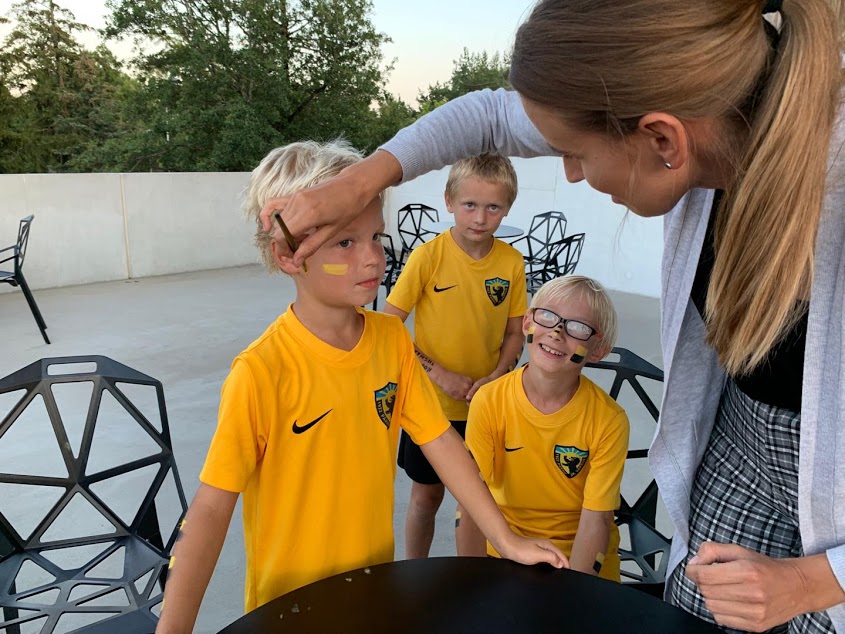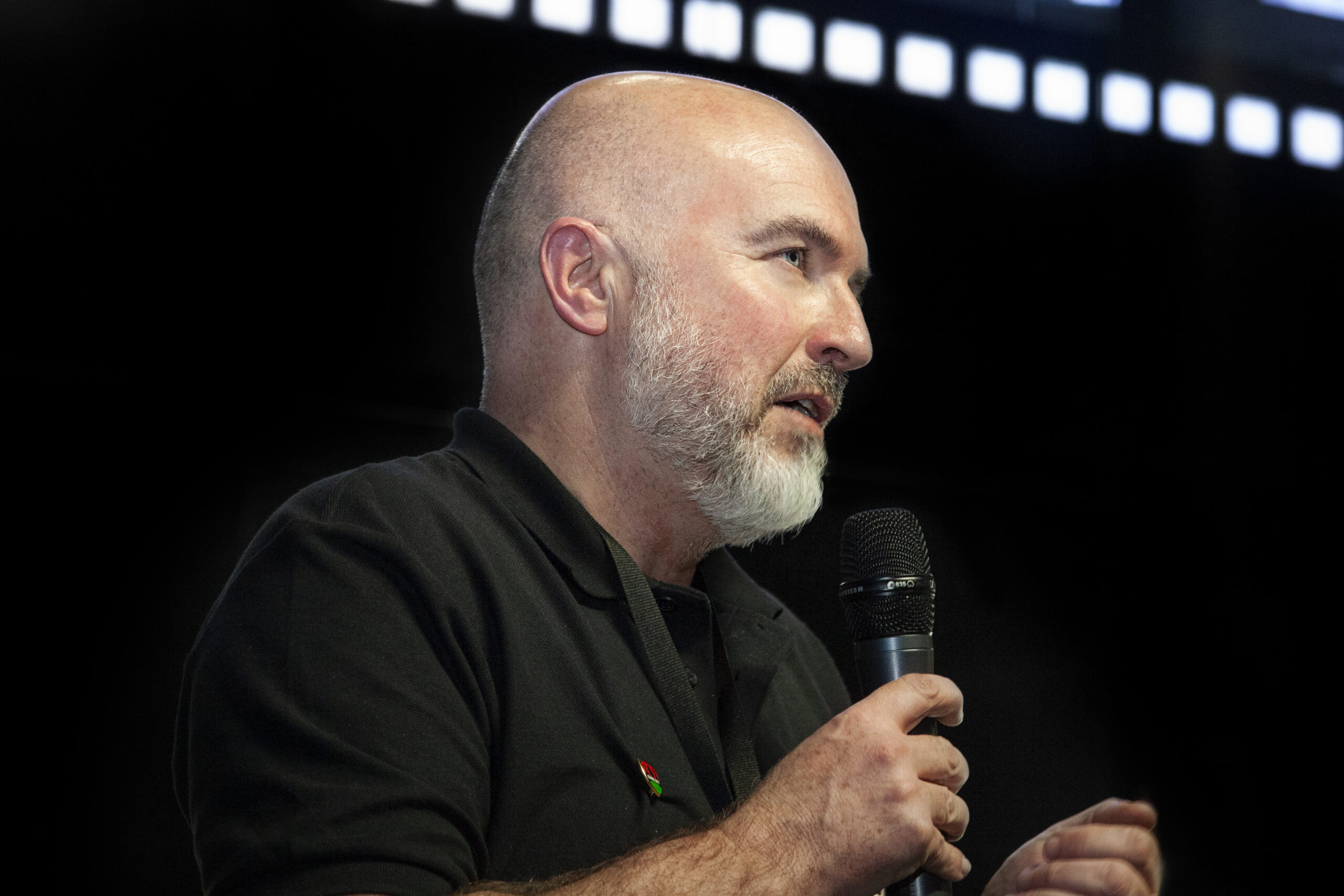Doesn’t your club have an identity? Doesn’t your club stand for something? If you worked on them with your stakeholders, couldn’t you begin to articulate your club’s intrinsic values?

THIS YEAR'S MODEL

Mark Bradley
@fanexperienceco
Mark works all over Europe helping associations, leagues and clubs to understand and improve fan engagement and their match day experience.
The Fan Experience Company was founded in 2005, and in 2019/20 they oversaw the assessment of over 350 games each season in 13 countries.
With apologies to Elvis Costello (whose new album ‘Hey Clockface’ is out this week and whose classic ‘Armed Forces’ is also re-released as an extended boxed set), ‘This Year’s Model’ for me is our up-to-date understanding of how Fan Engagement can support sustainable attendance growth, at all levels of the game, post-Covid.
Among non-elite clubs, where match day income is by far the greatest revenue stream, there has been (in general) an alarming lack of focus on strategic attendance growth. While many subscribe to the ‘only winning feeds growth’ theory, others discount at the first sight of trouble. You don’t have to be Einstein to recognise that neither of these strategies, subconscious or not, are sustainable and, when you factor in the health, economic and ‘lost habit’ concerns of the post-Covid era, they are potentially ruinous.
We can no longer put aside the questions that need asking, such as ‘why do we tolerate half empty stadiums?’ and ‘why is our break-even season ticket sales target based on experience not ambition?’.
We face an existential threat. We may experience an attendance ‘boost’ in the short term, as fans re-connect with the joy of the live football experience, but will this ensure without us addressing the issues of the past? Will fans’ tolerance levels remain high or will the cold water coming out of the hot taps in the stadium toilets finally push them over the edge?
The club that sees the pandemic hiatus as an opportunity to address the questions we’ve pushed to one side will immediately benefit because, as every business will tell you, simply addressing an issue starts to fix it. But when this proactivity becomes a business priority, both strategically and culturally, the results can be remarkable. Not only can you sustain or even grow attendances when you lose, but you can do that even after relegation.
Pärnu Vaprus averaged attendances of 352 six seasons ago when in the top tier of Estonian football. Attendances fell until, two seasons ago, they were relegated to the second division. At this point, as part of a UEFA Grow project, in which I participated as a mentor, we appointed Karin Lipstuhl as Community Development Officer (CDO). At this point attendances were around the 250 mark.
Karin had no prior knowledge of football but understood engagement. She focused on the power of the club’s identity and purpose; engaging and co-creating with the community and creating a fan experience that appealed to a much wider audience. The 38% increase in the club’s first season in the second tier might be explained by the fact that it was easier to win against lower ranked teams. But it wasn’t. They didn’t and the club is still in tier two 12 months later. But this time, there’s been a 62% rise and attendances average out just short of 600.
Karin also helped the club to achieve the highest ever attendance for a Estonian league game (over 1700) last season, in the second tier of football in that beautiful Nordic country.
Elsewhere, Daniel Lambert and his team have had similar results at Bohemian FC of Dublin. 6 years ago, the team wasn’t winning, and the stadium was only two parts habitable. That’s still essentially the case now, but the stadium is sold out and commercial performance is at an all-time record high.
Is that because they made good plans to sell tickets and flex their corporate talent? No. It’s because they, like Pärnu Vaprus, decided to do something different. They decided to make engagement a cultural and strategic priority. You can expect the club to take a stand on political issues, to support refugee charities with the proceeds from a special third kit, to support the rehabilitation of prisoners and to be onto their second poet now.
So, what is this year’s model? It’s our Four Pillars of Fan Engagement: the strategic and cultural elements you need in place, whatever your size of club and whichever level you play at, that will create the conditions for increasing engagement and attendance growth.
Our definition of Fan Engagement is ‘everything we do to understand, respect and grow the fan’s emotional investment in the club’ and the pillars ensure that your club is designed to grow through engagement.
The first is DNA: the club’s identity, natural values and true purpose. To what extent do your stakeholders (employees, volunteers, fans and wider community) see this in the decisions you make, especially at times of crisis?
The second is Communication: your genuine commitment to dialogue and co-creation with your stakeholders. Are you aware of the issues that shape your community’s perception of you and do you have the processes and systems in place to listen and act?
The third is Experience: the fan experience and the way you execute all of the services and activities that connect your community to your club? Are they are based on the needs of all your existing and potential fans so that the club’s reach grows and you diversify your match-attending fan base?
Finally – and most importantly – your People and the extent to which the culture and working environment in your club allows them to make the right decisions for your fans. Do they have the right skills and knowledge to make fans feel valued and to strengthen their trust in the club? Do you value them and give them ownership where there are opportunities to make fans proud of the club?
‘You don’t have to be Einstein’ I wrote earlier in this blog. But maybe we do need to listen to him. For wasn’t it he who said, ‘doing the same thing over and over again and expecting different results is the first sign of insanity’?
Do things differently. And you can step forward with confidence into the post-Covid era.
Our White Paper on the topic of safety and fan experience ‘It’s Just Like Watching Pret’ can be found here
© The Fan Experience Company 2020
